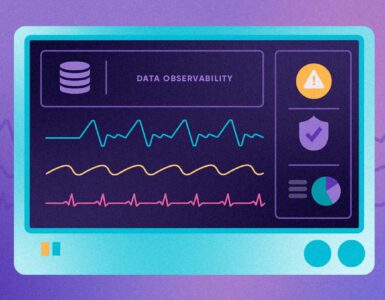PPC is a type of digital marketing service in which companies only pay for ads after users have clicked on them. This is called performance marketing because, unlike traditional advertising, you don’t have to pay for non-clickable ads, the cost of each interaction varies based on various factors, so managing a PPC campaign is an ongoing job.
PPC management is the practice of creating, tracking and optimizing, or customizing pay-per-click campaigns for the best results. This means that you must constantly analyze the most important parts of your PPC campaigns, including conversions, traffic, and other areas.
Visit For more ideas about organic advertisement by SEO
From the device your audience uses to the location of the people who see your ad, there are many different factors that affect and optimize your campaign’s performance and cost.
4 key features and working concepts that PPC management should focus on:
- KEYWORDS
Finding the terms consumers use to find your products and services will allow you to connect with customers who are willing to buy, not only that, but the keywords you use, how you use them, and the options you include in your ads. It will also help determine your expenses. Every industry is different, so you should do your own assessment to determine which keywords perform best.
There are many tools out there to help you identify the best (and worst or negative) keywords. These keyword research tools can give you a good idea of estimated costs and also tell you how difficult it is to rank high. However, not all keyword research tools are created equal, so it is important to choose a platform that provides reliable information.
- LANDING PAGE
The landing page, which is the exact URL that the user is redirected to after clicking on your PPC ad, also helps Google and other vendors determine CPC. Your entire business website needs to be relevant and functional, but your landing pages need to be fast, contain valuable content, and easy to navigate if you want an effective PPC campaign.
- OVERALL QUALITY SCORE
As part of the ranking engine, Google calculates your overall website quality score based on relevance, visuals, and functionality. If you’re landing page or entire site is slow and does not contain information that users will find valuable, your Quality Score will be low.
To deliver an effective PPC campaign, you need a good website that gets good reviews from Google and other platforms.
- CREATIVE ELEMENTS
Ad elements refer to all ad text, including the title, description, and display URL. PPC ads have limited space, so you need to create a compelling and relevant ad copy in your ad. This can help users understand how relevant your ad is to their search query, which is why the ad network rewards companies that do well.
BEST PPC PLATFORMS
Now that you understand the basics of PPC, I think your next question is, where should I advertise?
There are dozens of online marketplaces where you can spend your coveted money on advertising, and the best way to check them out is to take a close look at the potential ROI on each platform.
The most popular ad platforms are effective because they are easy to use and, most importantly, have a lot of traffic. But for smaller budgets, you might want to consider a lesser known alternative for these big players.
There are other factors to consider when choosing a platform: the availability of keywords, the places your target audience spends their time on, and your advertising budget.
Below Is a Partial List of Some of The Major PPC Services Platforms.
Google Ads (formerly known as AdWords)
How many times a day do you hear the phrase “Leave it to me on Google?” Maybe more than you can trust … So why Google Ads is the king of paid advertising. On average, Google processes more than 90,000 search queries per second, giving you plenty of keyword targeting opportunities that will get your target audience to click those keywords are highly competitive on the platform, which means higher ad spend.
Bing Ads
Of course, the advantage of using Bing Ads over Google Ads is a slightly lower CPC with a larger audience.
Facebook Ads
Facebook Ads is a popular and effective paid advertising platform (more commonly used as CPM than CPC), mainly due to its specific targeting options. Facebook allows you to target users based on their interests, demographics, location, and behavior.
Additionally, Facebook allows native ads, which means ads are imported and blended into the social feed. Not to mention, you can also use Facebook Ads to advertise on Instagram.
AdRoll
AdRoll is an ad retargeting platform for people who have visited your site. For example, suppose someone is reading your article on how to make cheese. You can redirect them to other websites they visit with display ads promoting your cooking classes online.
Perhaps with Google Ads, the advantage of using AdRoll is that you can serve ads on Google and on social media sites,
which gives you more options to capture clicks or impressions, depending on your goal.
RevContent
RevContent focuses specially on selling content material via PPC. It has the equal effect as a visitor post, wherein your content material is displayed on an outside site,
besides its withinside the shape of an ad you nevertheless bid on keywords, and your commercial is displayed subsequent to content material applicable to the ones keywords. With this platform, you’ll acquire the blessings of a low CPC and notably engaged traffic.



























